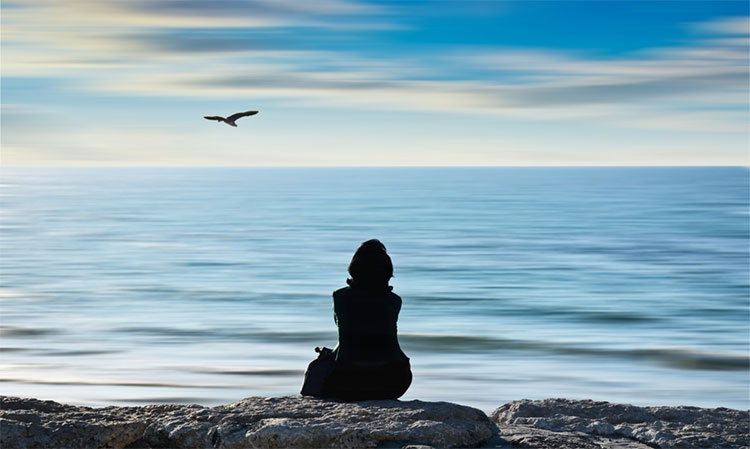What is the most lonely human being?
Researchers point out that at the end of the 20s, between their 50s and the late 80s, there are three most lonely human times.
People are becoming lonely. Dr. Vivek Murthy, a former US physician general, said.
Sharing with CNN, Dr Dilip Jeste, professor of psychiatry and neuroscience at the University of California, San Diego (USA), said loneliness does not mean loneliness, no friends : "Loneliness is determined. It means the subjective pain, it shows the difference between the social relationships you want and the social relationships you have. "
Some works show loneliness often occurs in the elderly, others conclusions are more common in young people. In order to find the correct answer to this problem, Dr. Jeste and his colleagues conducted a survey of 340 people in San Diego County between the ages of 27 and 101. The results show the times when people feel The most lonely seeing is the late 20s, between 50s and late 80s.

Loneliness can shorten the life expectancy of smoking 15 cigarettes a day.(Photo: amicitia).
The study does not indicate the cause of loneliness at each age . According to Dr. Jeste's inference, the end of 20 is a time when people must make many important and stressful decisions. Moreover, we often compare ourselves with our peers, believing that they do better than themselves and blame themselves.
Mid-50s is also a crisis. At this time, health begins to go down. Many people also find themselves with diabetes or heart disease. Not to mention, we will witness relatives and friends weaken and realize that life is not forever.
By the end of 80s, things got worse."Along with health issues, you can face financial difficulties as well as the departure of a spouse," Dr. Jeste said.
76% of the volunteers participating in the study identified themselves as being moderate to severe."We think the number of such people is only a third," said Dr. Jeste. However, there is no difference in the degree of loneliness between men and women.
As previous studies, Dr. Jeste's work and his colleagues point out that loneliness is associated with a decline in physical and mental health. In addition, the authors discovered an inverse relationship between loneliness and intellect.
" Smart people don't feel lonely and vice versa," explains Dr. Jeste. Wisdom here consists of six aspects: general knowledge of life; emotional control; empathy, compassion, altruism and a sense of justice; insight; Accept different values and assertiveness.
From the relationship between loneliness and wisdom, researchers expect people to repel loneliness by training the six aspects mentioned above.
"We need to realize loneliness is a serious problem," Dr. Jeste said. "Loneliness is sad but we can control more than you think."
- Do you know where to be lonely and away from the most people on Earth?
- 8 countries 'most lonely' in the world
- The most lonely bird on the planet is dead
- The life of the most lonely animals on the planet
- Story of the most lonely acacia tree on the planet
- Lonely or sick
- Detecting lonely genes
- Find the most 'lonely and poor' planet in the universe
- Discovering the universe 'most lonely' universe
- Where is the most lonely place in the universe?
- Discover the most lonely creature on the planet
- The most lonely job in the world
 'Fine laughs' - Scary and painful torture in ancient times
'Fine laughs' - Scary and painful torture in ancient times The sequence of numbers 142857 of the Egyptian pyramids is known as the strangest number in the world - Why?
The sequence of numbers 142857 of the Egyptian pyramids is known as the strangest number in the world - Why? History of the iron
History of the iron What is alum?
What is alum?